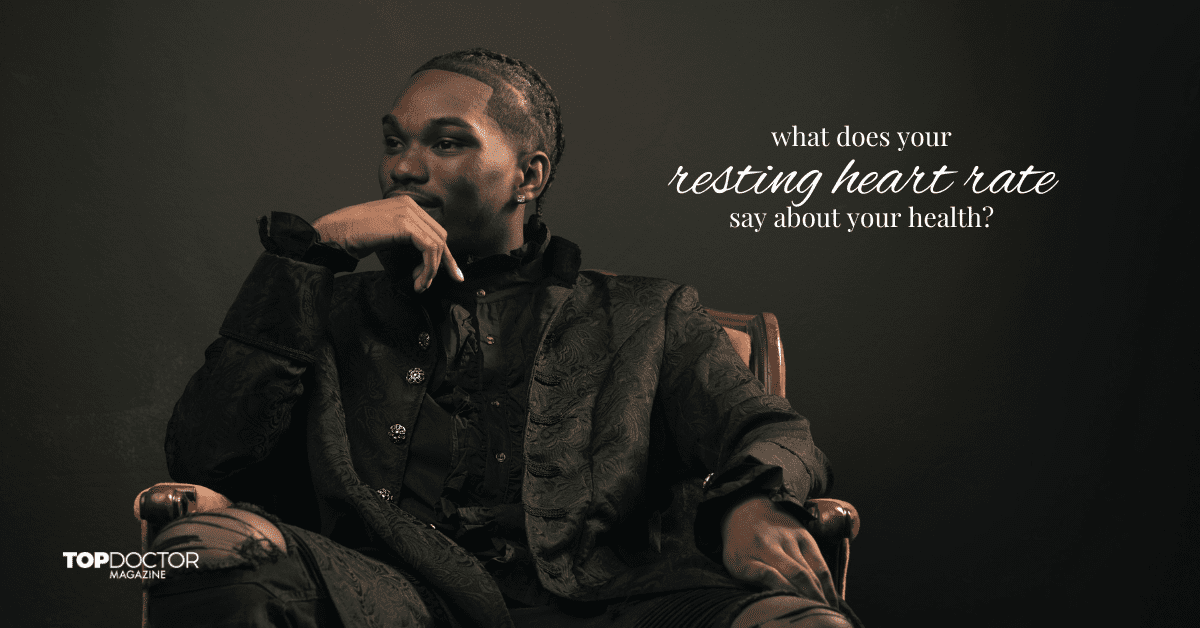Your heart is an amazing muscle. It works non-stop, day and night, pumping blood all around your body. And it doesn’t just pump blood – it also controls blood flow, ensuring that every organ and tissue gets the oxygen and nutrients it needs.
When you exercise, your heart rate increases as your body demands more oxygenated blood. But when you’re at rest, your heart rate slows down as your body doesn’t need as much oxygenated blood. This resting heart rate is a good indicator of your overall fitness level and health.
How Much Resting Heart Rate Should Be?
A healthy adult heart should beat 60 to 100 times per minute. A heart rate below 60 is called bradycardia, while one above 100 is called tachycardia. Both of these conditions can be serious, so if you think your heart rate is outside of the normal range, you should see a doctor.
Your heart rate can also change throughout the day, depending on what you’re doing. For example, it will usually be faster in the morning when you first wake up because your body releases hormones that increase heart rate. Stress and anxiety can also cause your heart rate to rise.
How Resting Heart Rate is Measured
Knowing your resting heart rate is an excellent way to take the pulse of your health. If you notice that your heart rate is consistently higher than expected, you may need to make some lifestyle changes. However, if you’re unsure what your resting heart rate is, there are a few easy ways to find out:
- Use a heart rate monitor (i.e., a wearable device that tracks heart rate);
- Take your pulse manually: Place your index and middle fingers on the inside of your wrist, just below your thumb. Once you find your pulse, count the number of beats in 60 seconds to find your heart rate.
What Resting Heart Rate is Too Low
A low resting heart rate can be a sign of good fitness, but it can also be a sign of heart problems. Conditions causing a low resting heart rate include:
- Heart conditions such as heart failure, cardiomyopathy or arrhythmia;
- Thyroid problems;
- Anemia;
- Some types of cardiogenic shock;
- Certain heart rhythm disorders.
In some cases, a low resting heart rate may not be cause for concern. For example, athletes or physically fit individuals may have a lower than average resting heart rate because their heart muscle is more efficient at pumping blood.
What Resting Heart Rate is Too High
A high resting heart rate can indicate an underlying health condition. Conditions that can cause a high resting heart rate include:
- Heavy alcohol use or alcohol withdrawal;
- High levels of caffeine;
- Illegal drugs such as stimulants (e.g., amphetamines, cocaine);
- Prescription drugs such as some beta blockers and thyroid hormones;
- Emotional stress or anxiety;
- Pregnancy;
- Overactive thyroid (i.e., hyperthyroidism);
- Anemia;
- Septic shock;
- Cardiac arrest.
A high resting heart rate is not always a cause for concern. For example, anxious or excited people may have a higher than average resting heart rate.
Are Resting Heart Rate and Blood Pressure Related?
Resting heart rate and blood pressure are related, but sometimes the relationship isn’t as straightforward as you might think. Your resting heart rate measures how many times your heart beats per minute when you are at rest, whereas blood pressure is the force of your blood pushing against the walls of your arteries. The higher your blood pressure, the harder your heart has to work to pump blood throughout your body.
A high resting heart rate may indicate that your heart is not functioning as efficiently as it should be. It can be a sign of poor cardiovascular health and may increase your risk for heart disease. On the other hand, high blood pressure means your heart is working harder than it needs to, leading to the same risk of heart disease.
Many factors can affect your resting heart rate and blood pressure, including your age, weight, level of physical activity and stress levels.
Does Resting Heart Rate Increase With Sickness?
Whether heart rate increases when one is sick or not is a little complicated to answer. It mainly depends on the severity of your illness. Generally speaking, your resting heart rate will increase if you have a mild illness. However, your heart rate may decrease when suffering from a more severe illness because your body is trying to conserve energy. So while a higher heart rate may indicate a minor illness, it’s not necessarily indicative of a more severe condition.
Exercise and Resting Heart Rate
Exercise isn’t just good for your heart, it can actually help normalize your heart rate. If you have a healthy heart, chances are that your resting heart rate will be between 60 and 100 beats per minute. But if you’re out of shape, your heart has to work harder and will likely have a higher resting heart rate.
Any exercise that gets your heart pumping and makes you sweat will keep your heart rate normal! Cardio activities like running, biking and swimming are all great choices, but even something as simple as a brisk walk can make a difference.
High-intensity interval training (HIIT) is also a great way to get your heart rate up and keep it there. It involves short bursts of all-out effort followed by brief recovery periods. Not only is HIIT great for heart health, but it can also help you torch calories and improve your overall fitness level!
A Parting Reminder
Your heart rate can tell you a lot about how healthy your heart is. A fall in your heart rate outside the normal range could indicate an underlying health condition. If you’re concerned about your resting heart rate, talk to your doctor, who can help you determine if there’s a cause for concern and develop a plan to improve your heart health.






0 Comments